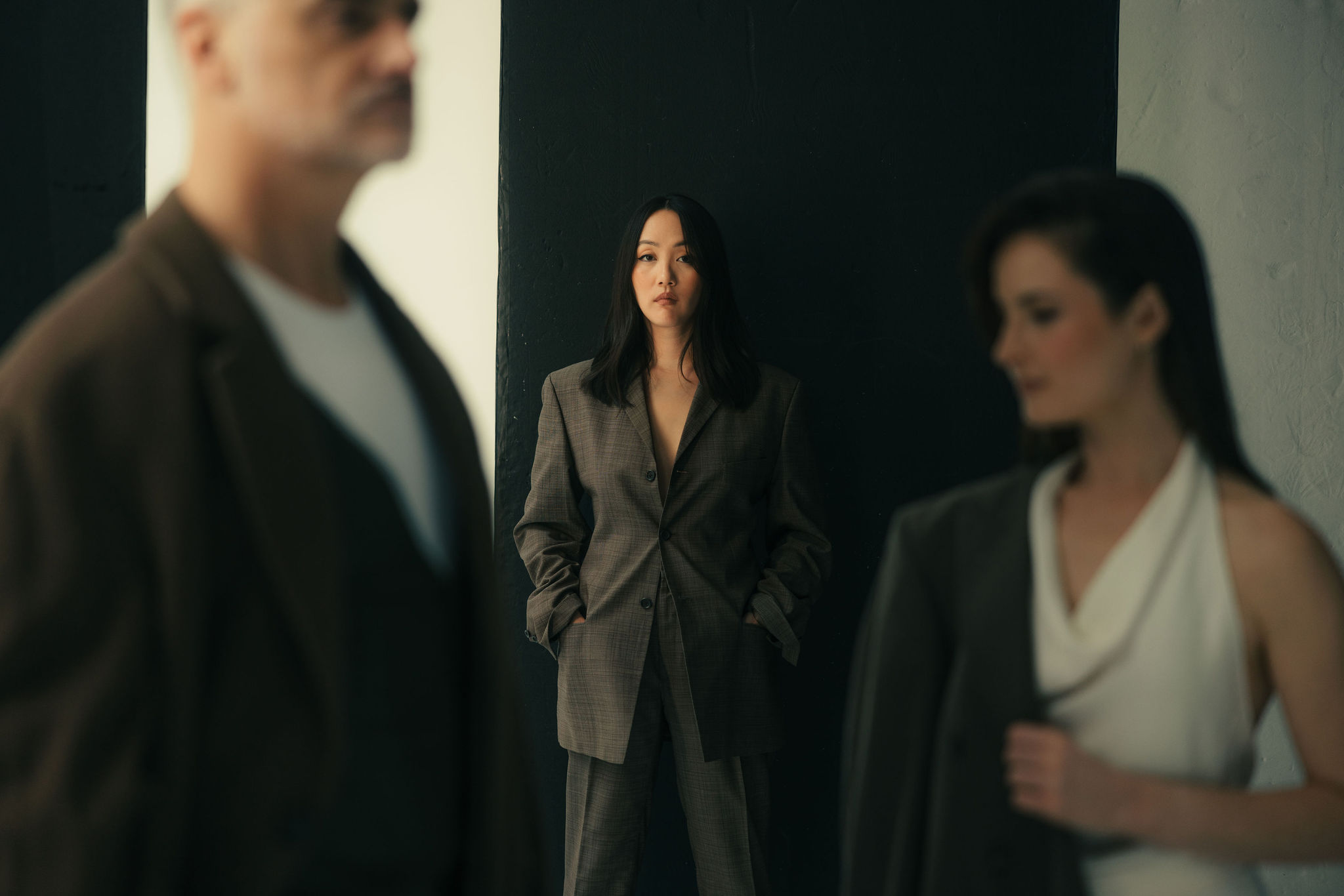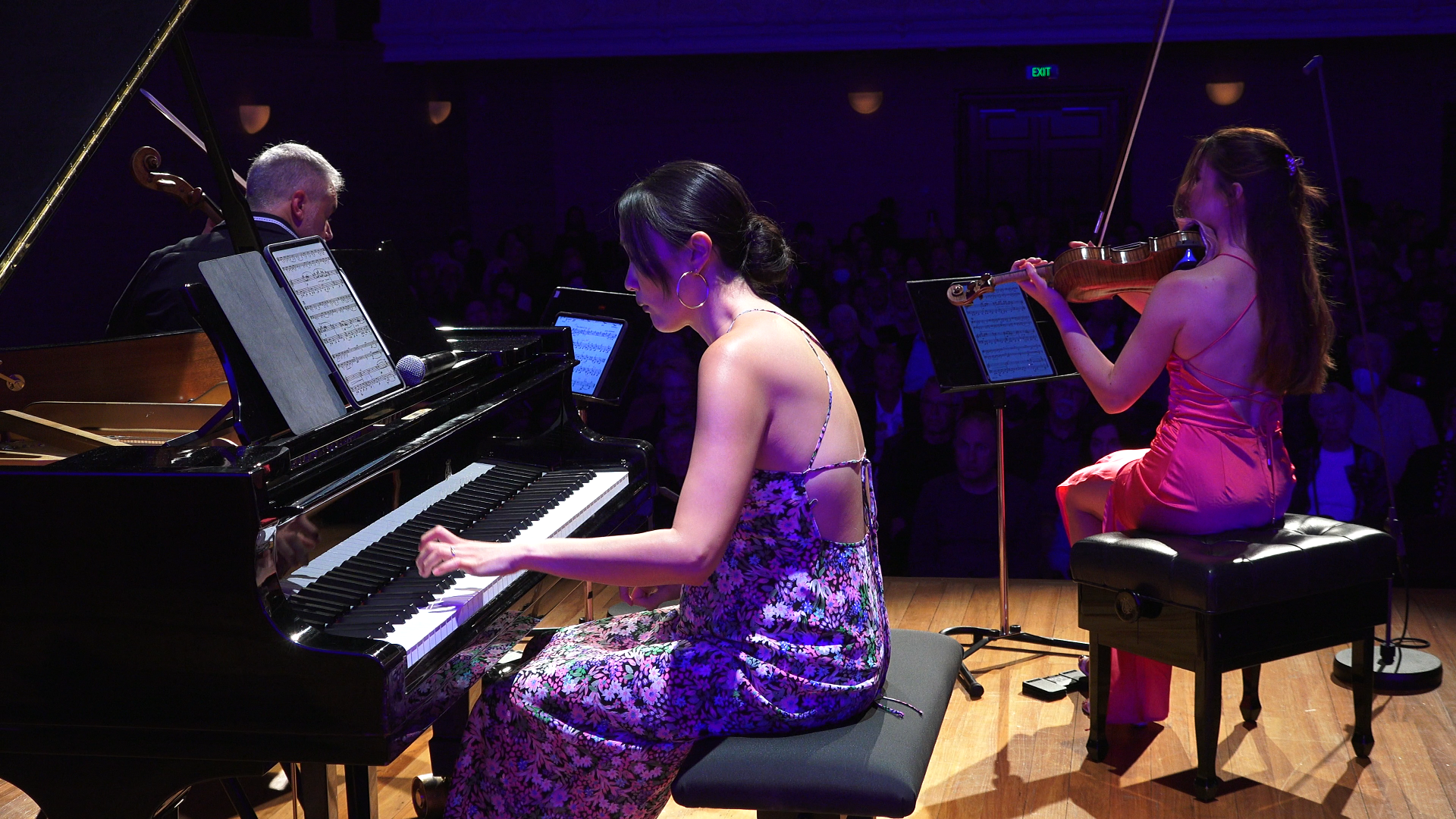NZTrio’s recent concert, Origins, was one of the first live concerts post Coronavirus in Auckland and showed that they are one of the worlds outstanding musical groups, effortlessly spanning the classical and contemporary repertoire.
~ John Daly-Peoples, NZ Arts Review
NZTrio’s recent concert, Origins, was one of the first live concerts post Coronavirus in Auckland and showed that they are one of the worlds outstanding musical groups, effortlessly spanning the classical and contemporary repertoire.
The five works in the concert spanned 200 years from Beethoven’s Piano Trio through to a recent commission by the New Zealand composer Sarah Ballard along with works by Mark-Anthony Turnage, Isang Yun and Alexander Zemlinsky. The five works were intended to show the range of influences on the various composers as well as the backgrounds and choices made by members of the trio.
The Beethoven work which gained its title for the ghostlike second movement relies on the talents of the three players and the NZTrio showed that they are threesome with a real sense of purpose. Individually they are exceptional musicians but when playing together they are electrifying.
Ashley Brown provided the bedrock of the piece, his cello moved from whispering to howling and rumbling, capturing an underling sense of tension. Amalia Hall gave a sensitive and energetic performance while Somi Kim at the piano never dominated the two string players integrating her beautifully expressed playing with verve.
Throughout the piece the three players seemed to communicate not only through the music but also with an empathy and awareness of each other. They brought a depth of understanding to the piece as through revisiting the composers own personal sense of nostalgia and the mysterious.
Mark-Anthony Turnage’s “A Fast Stomp” was radical mixture of classical music infused with punk, jazz and film music. The work encapsulates the evolution of music from the classical through to modernism with a number of experimental sequences.
Sarah Ballard’s commissioned work “Prema Lahari” was inspired by Indian music and Sanskrit poetry and made use of a drone as well as prayer bells. The Western instruments replicated the sounds of Indian instruments such as the sitar with the trio played in a relaxed, almost yoga-like contemplative style.
Isang Yun’s “Piano Trio” was an acknowledgement of pianist Somi Kim’s Korean heritage. Yun’s music is an amalgamation of Asian musical styles and Western avant-garde. The work composed in the 1970’s pushes the boundaries of music with techniques and sounds the violin and cello being played in unconventional way – using the wood of the bow to lay the strings and extended glissandos, sliding up and down the strings. the strings brushed and lucked in the violin and cello ss well as the piano with Kim leaning into the piano to create eerie sounds.
The music provided watery sounds; rain falling, lakes shimmering and water dripping. These sounds provided a sense of nature but also the ventured into the realm of electronic music.
The final work on the programme was Zemlinsky’s Piano Trio” written in the 1890’s when he impressed Brahms with his originality. This work was a far cry from his more modernist works such as his opera “The Dead City”, although it prefigures his more experimental music. The first movement was late Romanticism on a grand scale worthy of Brahms while the middle section had theatricality to it with the finale displaying a passionate emotionalism. This was all delivered with flawless technique capturing the late flowering of Romanticism and hinting at an emerging modernism.
John Daly-Peoples, NZ Arts Review

